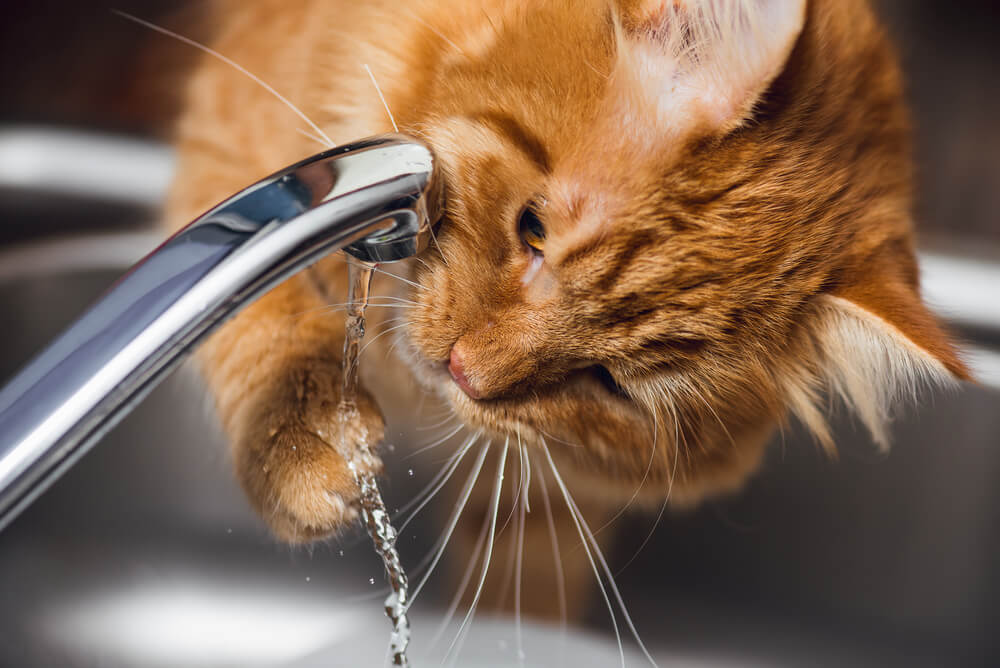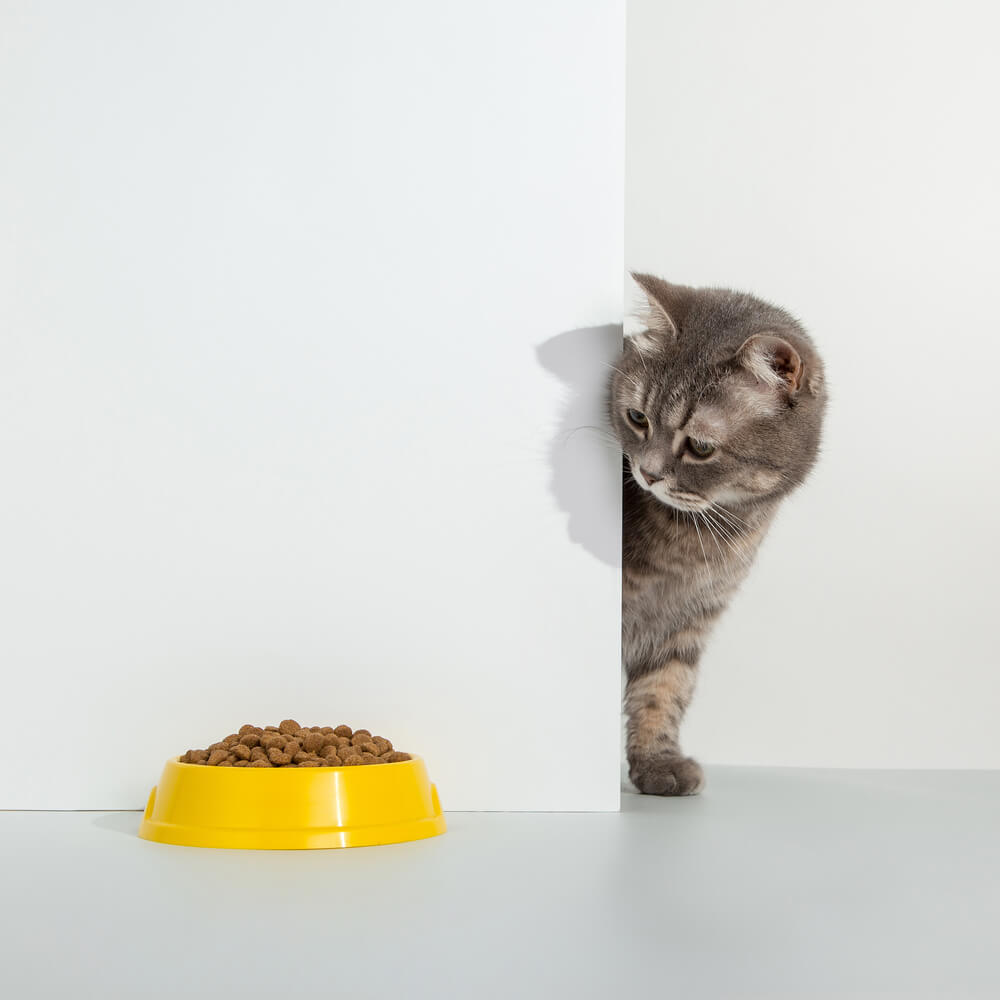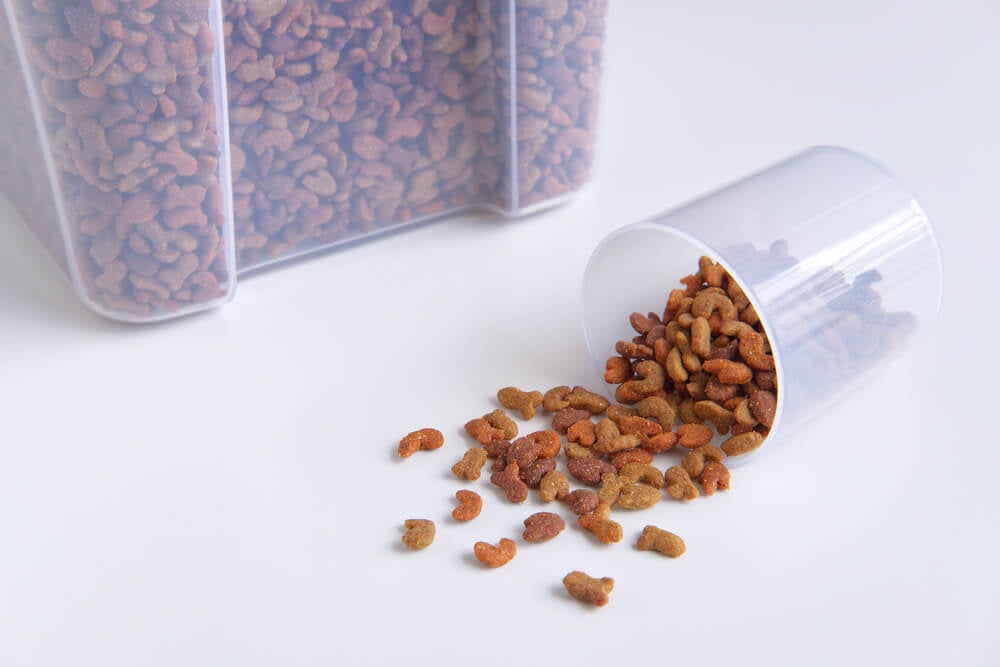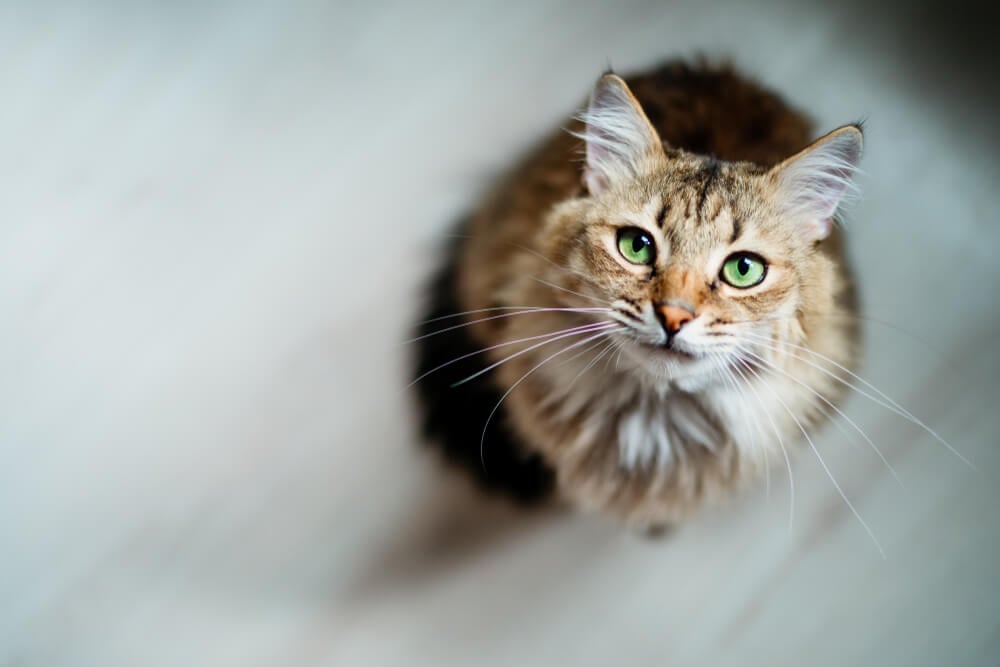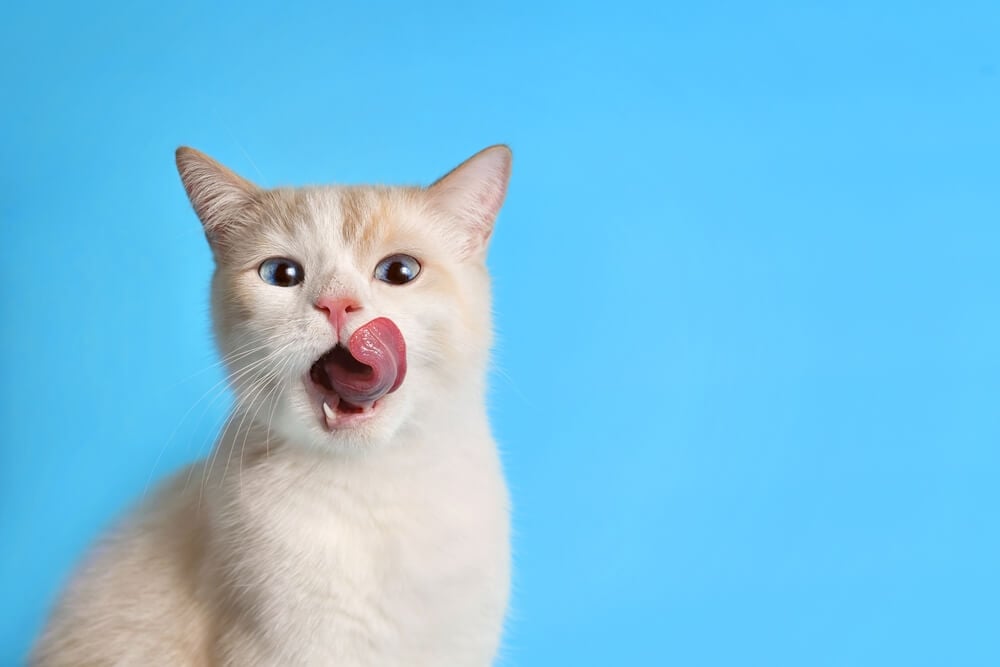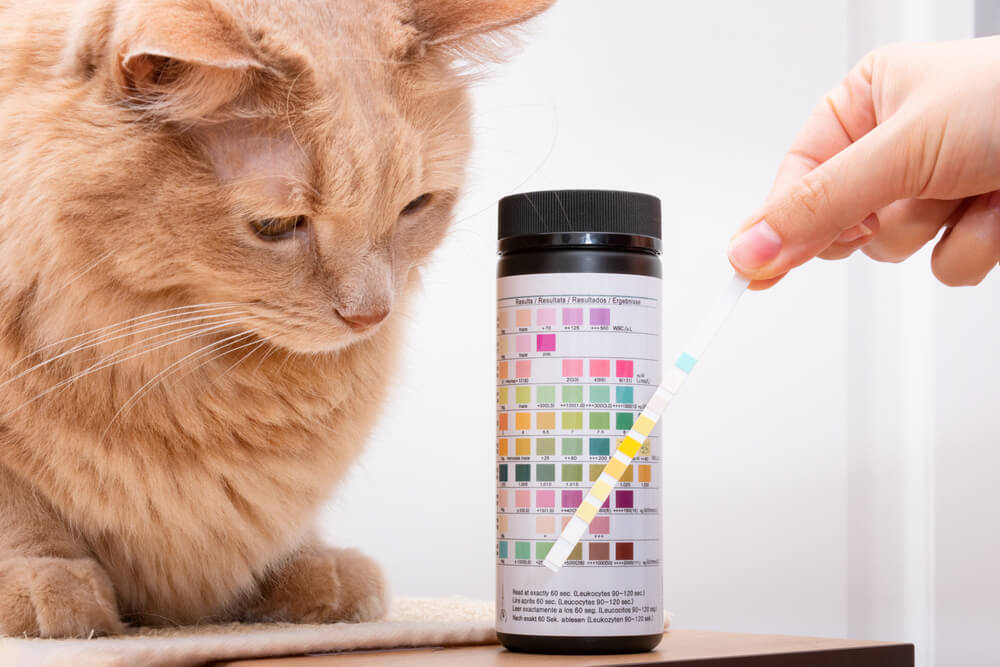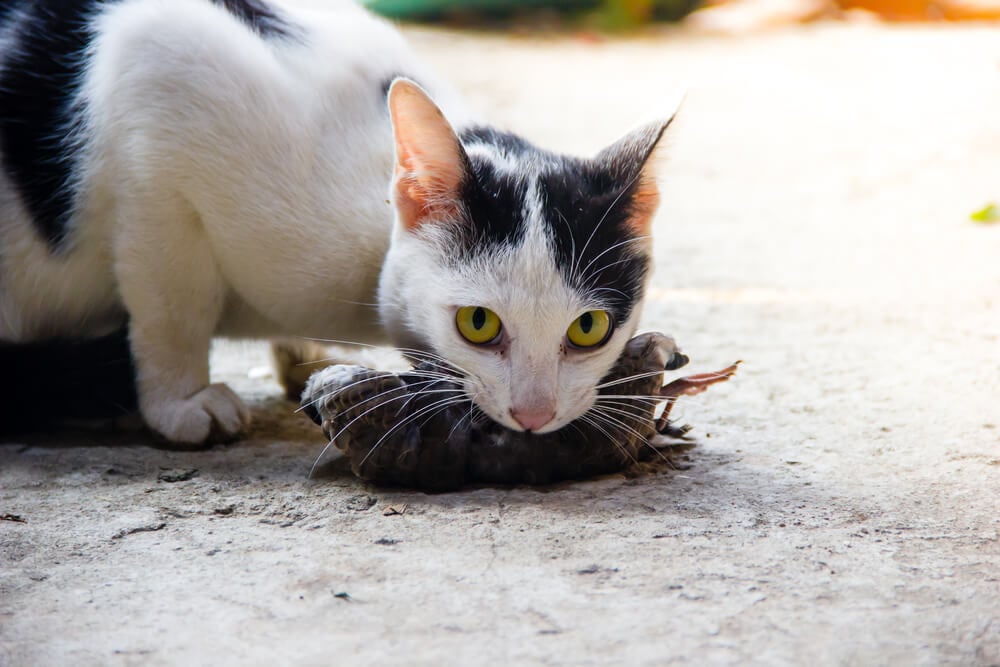
Pre-cat-owning you might have been blissfully ignorant about how many ‘gifts’ your outdoor cat would bring you over their lifetime.
Because deceased, or more often not-quite-deceased, mice/rats/lizards/birds [insert other small or even not-so-small animal] delivered to your door like some kind of food delivery order gone horribly wrong is all part of owning a cat.
In terms of numbers, cats in the UK bring home five dead animals a year on average, with researchers estimating this is only a quarter of their annual kills, meaning they’re hunting and killing around 22 items of prey a year.1
By any means, that’s a large number of animals. But have you ever wondered why your cat is bringing you these delightful gifts?
There’s more to it than you might realize…
Deep instinct
You’re unlikely to be surprised if we said that a cat’s desire to hunt is a deep instinct that lies buried within their genetics. You may have wondered why your cat pounces and stalks or uses hunting behaviors when they’re an inside cat, and it’s all for the same reason: their instinct to hunt is overpowering.
Even if they know they don’t need to catch food to survive, it’s still part of their nature, and they enjoy the mental and physical challenge and the feeling of ‘hunting’, even if it’s simply a toy mouse or a leaf in the wind.
Feeding their loved ones
Cats also instinctively hunt in order to feed their family — especially female cats who would be the ones responsible for hunting and feeding their litter in the wild. Some experts believe when a cat presents you with an item they’ve hunted and killed, it means they consider you part of their family.
There are pros and cons to this — you may feel honored to be thought of in this way, but unfortunately a small animal gave up their life for this honor to be bestowed.
They feel safe at home
Some people believe the reason cats bring objects they’ve hunted back to their home (also known as your home) is because they feel safe there. It’s their patch, their territory, and once they are safely through the cat flap they can either eat it, play with it or leave it safely for later without any other cats taking ownership or stealing it from under their paws.
What about hunting things that aren’t animals?
Sometimes, your cat will bring home something surprising that isn’t, or wasn’t formerly, alive. A sock, perhaps, from someone’s washing drying in the breeze. An item of food from a bin. A small pile of leaves. A stick. The reason is most likely because they thought it moved like prey, it was easy to catch and they wanted to investigate further in the safety of their own space.
What to do if your cat brings home an animal
If the animal is dead, try to remove it from your cat before they can attempt to eat it, as consuming the animal might lead to illness. Once removed, bag the animal and place it in your trash.
If the animal is still alive, remove your cat from the room, then let the animal outside, or catch it and release it into your garden or a nearby park. Keep your cat inside long enough to give the animal time to escape.
If the animal is injured, it’s best to get in touch with the ASPCA (American Society for the Prevention of Cruelty to Animals), who can provide advice on the next steps to take.
Can I stop my cat bringing animals home?
In short, the answer is no, but you can do things to reduce their hunting instinct. Obviously, indoor cats do not hunt animals (unless they find any in the house), so the simplest solution is to keep your cat indoors, but if your cat is already an outdoor cat this will be practically impossible, and unfair on your cat.
Another solution is to control the times of day you allow your cat outdoors, restricting their movement outside during dawn and dusk when animals are more active.
One answer is to put a bell on your cat’s collar, acting as a handy warning to small birds or mammals that a cat’s on the prowl.
You could also try offering more outlets for your cat around the home, including playing with them more often, meaning they won’t spend so much energy pouncing on unsuspecting rodents. By enriching their environment in the house with items such as scratching posts, toys that move themselves and act like prey, and items to hide in, leap off, and climb up to, the population of small animals in your local area will thank you.
- https://www.theguardian.com/environment/2022/aug/14/cats-kill-birds-wildlife-keep-indoors ↩︎
We uphold the highest editorial standards when creating the authoritative content pet parents rely on and trust.
Every piece of clinical content on the Cat Food Advisor is reviewed by our certified Veterinary Advisory Board, which consists of licensed veterinarians and medically certified specialists.
Our reviews are completely independent; we are not paid by any pet food company to promote their products favorably. We do not accept money, gifts, samples or other incentives in exchange for special consideration. For more information see our Disclaimer & Disclosure page.




